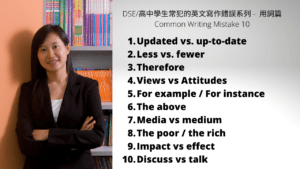Edexcel English IGCSE: Explorers, or boys messing about? by Steven Morris
Q3. In ‘Explorers, or boys messing about?’ how does the writer portray the adventurers?
In your answer, write about:
- the maturity of the men;
- their preparation and execution of the trip;
- the opinions of others;
- the use of language.
You should refer closely to the text to support your answer. You may use brief quotations.
Edexcel English IGCSE Model Essay by an Expert
The men in this article are portrayed as adventurous but immature risk-takers. From the opinions of others, the reader learns that they weren’t well-qualified for the trip.
The writer plays on the idea that the men were immature and irresponsible. The metaphor suggested by one adventurer’s wife that the men were simply “boys messing about” is utilised in the headline and throughout the article. They are described as a “helicopter duo” going on a “new adventure”, creating an almost sarcastic tone of heroism, as if they are children’s comic characters. Vestey, Brooks’s wife, states that she didn’t know “what the pair were up to”, showing almost comical motherly disapproval. The writer continues the idea of the men as children, by subtly suggesting at their immaturity. He quotes their website, which ironically describes their “trusty helicopter”; this phrasing is flippant, suggesting that the men were treating the trip as a joke. The adventurers are thus portrayed as immature and naïve.
In the description of the disaster, the writer presents the men as somewhat under-prepared for their trip. The verbs used to describe the rescue emphasise the helplessness of the men: they “scrambled” onto their liferaft, suggesting desperation, and they had to be “plucked” from the sea, making them sound small and vulnerable. Furthermore, in his phone-call to his wife, Brooks describes the emergency services as “emergency people”, suggesting that he wasn’t necessarily aware of who could help them. Although the writer acknowledges that one of the pair had an “emergency watch”, he also chooses to include that this watch was “a wedding present”, suggesting that it was only by chance – and because of somebody else’s concern – that he had this equipment. Thus the writer reinforces the idea that the men were not adequately prepared for the disastrous outcome of their trip.
Throughout the article, the voices of experts are included to further highlight the extent of the men’s foolish bravado in taking such a risk. According to the writer, experts believed that it was unwise to take such a small helicopter into this “hostile environment”. This emotive language shows that the Antarctic was an entirely unsuitable place for their so-called “trusty helicopter”. One expert is quoted as saying that he would not have undertaken their expedition. The author positions this immediately before a quotation from the men’s spokesperson, stating that the flying conditions were “excellent”. By juxtaposing these two views, the writer subtly implies that the men were not sufficiently aware of the dangers of their trip.
The writer portrays the adventurers as incompetent and childish. Their views are contrasted with those of experts, suggesting that despite their qualifications and previous achievements, they were not sufficiently knowledgeable to undertake this trip.




